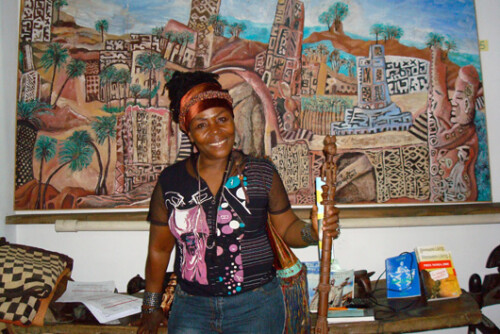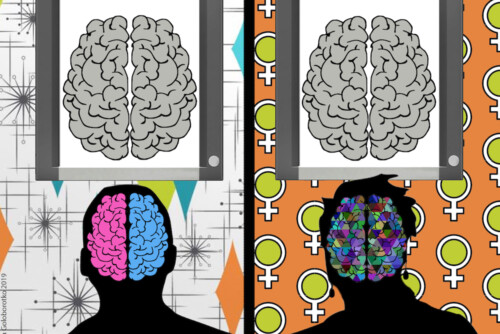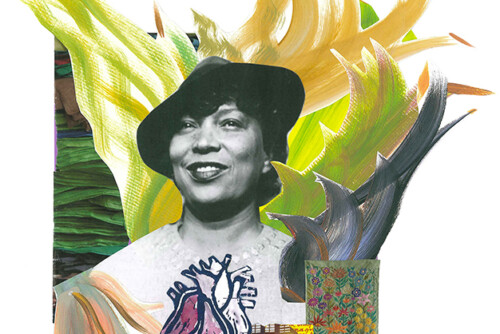II.
Part one of Obama’s memoir, entitled “Origins,” begins with news of his father’s death. While a college student at Columbia University, Obama is informed by telephone that the father he hardly knew has been killed in a traffic accident in Kenya. With this news, the possibility of future rapprochement is lost, the name of the father an enigma wrapped in a permanent mystery. For Lacan, the Name-of-the-Father is the fundamental signifier securing the entry of the subject into the symbolic order courtesy of a lineage, and instating Oedipal prohibition, the Father’s Law. Its efficacy is not related to, and can indeed actually be increased by, the actual father’s death or absence. Dreams from My Father thus becomes a memoir that is overdetermined by the Name-of-the-Father. 1 With the news that he will never know who his father was, and even more anxiously, that he will never know who he was for his father, paternity takes the shape of an “unclaimed experience.” 2 Dreams from My Father revolves around the dilemma produced in a patriarchal culture (American, Kenyan) when patrimony goes unarticulated, but is nonetheless of great consequence. For the Name-of-the-Father, after all, is in this case also the (symbolic and given) name of the son.
The title of Obama’s memoir seems to suggest recourse to a quasi-mystical faith in trans-individual organic memory to recover Africa as an unclaimed paternity. To grasp how the metaphor of an inheritable dream might serve as an anchoring point to a diasporic subject like Obama, we might usefully bring into play here Lacan’s distinction between the symbolic father and the imaginary father. Obama’s text seeks to interpret the non-relation between the symbolic fathers who order the American discourse of race and inheritance, and his imaginary father, the fatherly Imago, whose absence from his American (and Indonesian) upbringing indexes instead a mythic, exteriorized, Kenyan concern. Instead of the Father’s Law, Obama receives merely his Name, and the contours of an absent presence he must somehow fill. The metaphor of the inheritable dream mediates this division between symbolic and imaginary, as Obama imagines that what he can inherit is, paradoxically, the ability to interpret the dreams—the fantasies and desires—of his own parents, whose brief transnational romance provides the primal scene he must confront if he would make his own way through this world. 3
The circumstances in which Stanley Ann Dunham and Barack Hussein Obama, senior, met and married, birthing one child before divorcing, place a productive pressure on the standard psychoanalytic scenario. That pressure is archived in the acoustic pattern of the hybrid Luo/Swahili/Arabic name that the younger Obama inherits from his father. While the name is obviously interlocked with multiple symbolic orders and imaginary registers (fanatic terrorist, corrupt African, multicultural America, hybrid savior, etc.) it also points to a bedrock anxiety in the speaking of language, one reflective of what Derrida terms, in my epigraph, “the originary violence of language.” 4 The epigraph is extracted from a critique of the “proper name,” which Derrida considers an improper notion, insofar as to name is to inscribe difference, in the process divorcing the subject from a self-presence that, he notes, was always an illusion anyway. This paradox is key to exploring the tension between Dunham’s apparent assent to the patriarchal logic of assigning the father’s full name to her child, and the fierce and feminist independence that must have accompanied her active insistence upon a larger world than that given to her by her prairie origins. More is enclosed within the Name-of-the-Father, it would seem, than its proper Lacanian function would intimate. We see, for instance, that despite his androcentric title, the parent that Obama consistently seeks to understand in Dreams from My Father is his mother, since it is her dreams that have made him as much as any others.
One of the consequences of the mother’s desire is the awkward name itself, which the young Obama must perilously navigate through the shifting shoals of ignorance and interpellation on the playgrounds and schools of Indonesia, Hawai’i, and California. In Dreams from my Father, he describes temporarily mitigating his shame by accepting the Americanized nickname Barry (first used by the same grandfather who, originally desirous of a son, had named his daughter Stanley). Obama’s memoir thus presents us with a case in which the name preserves “originary violence” through its postcolonial protrusion into the vernacular, foiling any effort to seamlessly integrate paternal lineage into the symbolic order.
This failure is especially apparent in liberal efforts at inclusion and toleration. Introduced into a new class in Hawai’i after his return from Indonesia, Obama encounters a friendly teacher who tries to reintegrate him into an American classroom by paying sensitive attention to his name and identity, saying:
I used to live in Kenya, you know. Teaching children just your age. It’s such a magnificent country. Do you know what tribe your father is from?”
Her question brought on more giggles, and I remained speechless for a moment. When I finally said “Luo,” a sandy-haired boy behind me repeated the word in a loud hoot, like the sound of a monkey. The children could no longer contain themselves . . .. 5
Here, the sound pattern of “Luo” induces an acoustic image that is instantly mimed in a thrilling whoop of racist pleasure. As he hears the word describing his father’s heritage spoken aloud, the son’s intense shame and resentment touches upon his inability to either fill that sign with the proud content of cultural knowledge, or drain its acoustic proximity to the jungle.
- But this without the psychosis Lacan believed would be consequent upon such a foreclosure: “For psychosis to be triggered, the Name-of-the-Father—verworfen, foreclosed, that is, never having come to the place of the Other—must be summoned to that place in the symbolic opposition to the subject.” Lacan, Écrits, 481.[↑]
- Cathy Caruth, Unclaimed Experience : Trauma, Narrative, and History (Baltimore: Johns Hopkins University Press, 1996).[↑]
- Because Obama, senior, cannot symbolize the American racial order within which he nevertheless positions his son, he also takes on a specific relation to the third, enigmatic role Lacan speaks of: the real father. This is not the “biological father,” or the father in reality, but the pressure of paternity asserted as a trauma upon the child in the form of rumor and reported speech—the man “said to be” the father. When Obama returns to Africa towards the close of his memoir, in search of the real father by way of the fatherly imago in other’s memories of him, he is brought face to face with this trauma of the real father through the inconsistent reports of this person “said to be” the father, and must thus confront the possibility of his own non-relation, precisely through his filial connection, to this father in the real.[↑]
- Jacques Derrida, Of Grammatology, trans. Gayatri Chakravorty Spivak, Corrected ed. (Baltimore, MD: Johns Hopkins University Press, 1998), 112.[↑]
- Barack Obama, Dreams from My Father: A Story of Race and Inheritance, First Paperback ed. (New York: Three Rivers Press, 2004), 60.[↑]



